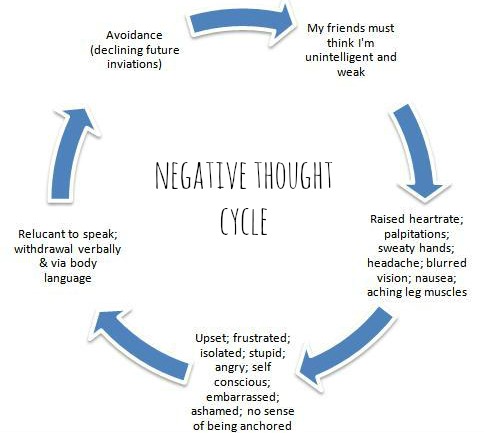
The neuroscience of happiness and well-being. The impact of optimism on cancer-related and postsurgical cancer pain: A systematic review. Think about things you're thankful for in your life. If a negative thought enters your mind, evaluate it rationally and respond with affirmations of what is good about you. Start by following one simple rule: Don't say anything to yourself that you wouldn't say to anyone else. Negative people may increase your stress level and make you doubt your ability to manage stress in healthy ways. Make sure those in your life are positive, supportive people you can depend on to give helpful advice and feedback. Surround yourself with positive people.Follow a healthy diet to fuel your mind and body. Exercise can positively affect mood and reduce stress. You can also break it up into 5- or 10-minute chunks of time during the day. Aim to exercise for about 30 minutes on most days of the week. When you can laugh at life, you feel less stressed. Give yourself permission to smile or laugh, especially during difficult times. If you find that your thoughts are mainly negative, try to find a way to put a positive spin on them. Periodically during the day, stop and evaluate what you're thinking. Think of a positive thought to manage your stress instead of a negative one. You can start small by focusing on one area to approach in a more positive way. If you want to become more optimistic and engage in more positive thinking, first identify areas of your life that you usually think negatively about, whether it's work, your daily commute, life changes or a relationship. Following are some ways to think and behave in a more positive and optimistic way: The process is simple, but it does take time and practice - you're creating a new habit, after all.

You can learn to turn negative thinking into positive thinking. You see things only as either good or bad. Keeping impossible standards and trying to be more perfect sets yourself up for failure. You make a big deal out of minor problems. You think of all the things you think you should do and blame yourself for not doing them. You avoid being responsible for your thoughts and feelings. You try to say someone else is responsible for what happened to you instead of yourself. The drive-through coffee shop gets your order wrong, and then you think that the rest of your day will be a disaster. You automatically anticipate the worst without facts that the worse will happen.

For example, you hear that an evening out with friends is canceled, and you assume that the change in plans is because no one wanted to be around you.

When something bad occurs, you automatically blame yourself. That evening, you focus only on your plan to do even more tasks and forget about the compliments you received. You completed your tasks ahead of time and were complimented for doing a speedy and thorough job. For example, you had a great day at work. You magnify the negative aspects of a situation and filter out all the positive ones. Not sure if your self-talk is positive or negative? Some common forms of negative self-talk include:


 0 kommentar(er)
0 kommentar(er)
